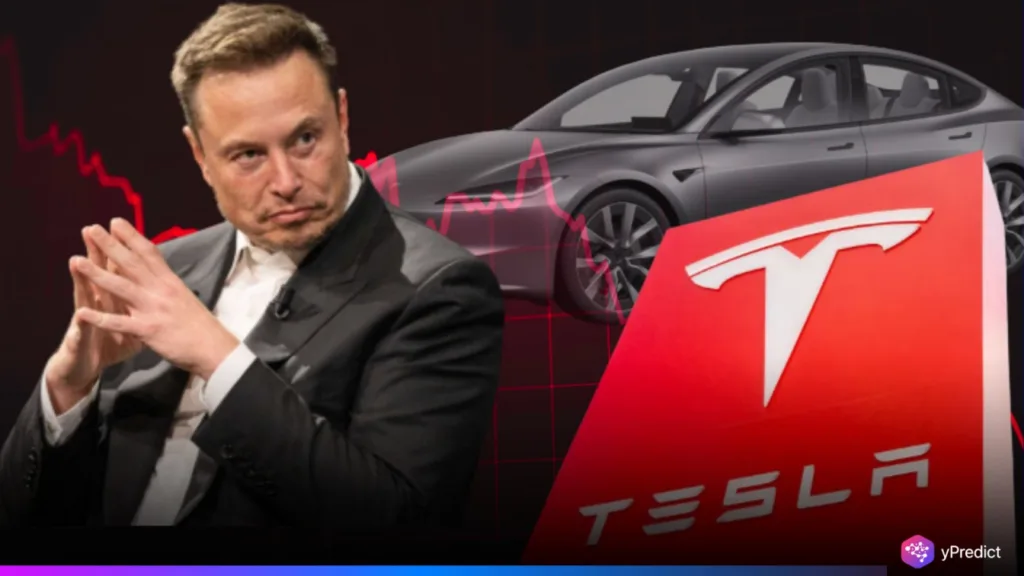
Tesla’s dominance in Europe is slipping. In June of 2025, it recorded a 2.8% market share, compared to 3.4% in 2024. The car maker saw a 22.9% decrease in the number of new car registrations, amounting to 34,781 vehicles sold. This drop is not merely a question of pricing or competition, etc. – This drop is about artificial intelligence. Tesla’s once cutting-edge models now seem outdated in an auto market that increasingly expects intelligent, fully adaptive vehicles. Chinese EVs have rapidly delivered developments with AI innovations, and consumers have taken notice. As competitors debut their own smarter and less expensive vehicles, Tesla is being pushed down.
The steady drumbeat is indicative of a much larger movement in consumer behavior. Buyers expect vehicles that seamlessly deploy AI technology = not electric performance. The decline comes at a time when the European EV market itself is growing. In Q1 2025, EV sales jumped 28%. Yet, Tesla’s sales dropped 37%, highlighting the brand’s disconnect from AI-powered momentum. Without rapid innovation, Tesla may fall further behind.
Chinese EVs Use AI to Accelerate Ahead
Chinese EVs are no longer followers—they are setting the pace, especially in AI. BYD, the leading Chinese automaker, saw a 70% global sales surge in 2024. This success wasn’t accidental. BYD’s strategy hinges on AI integration—vehicles equipped with predictive systems, intelligent navigation, and adaptive user settings. European buyers are turning toward these smart features that Tesla has not significantly updated in recent models. AI now drives the purchasing decision. Chinese EVs present a sharper value proposition, not just with pricing, but with smart tech.
BYD’s growth is powered by AI systems that learn driver behavior and optimize performance in real time. Tesla’s rivals are designing around AI-first experiences, while Tesla continues to iterate on hardware without reimagining its AI suite. The result is a Tesla decline that feels less like a cycle and more like a pattern. Chinese automakers understand the European market’s appetite for AI. Their cars are not only affordable but intelligent, giving them a firm edge.
NIO Expansion Tesla Reinforces the AI Revolution
NIO’s rapid expansion in Europe marks another turning point in the AI-driven EV race. The company isn’t just selling cars—it’s building an AI ecosystem. With a stronghold in markets like Germany, the Netherlands, and Norway, NIO is stepping directly into Tesla’s former strongholds. NIO’s success lies in its software-first approach. Intelligent cabin control, AI assistants, and real-time adaptive driving assistance characterize NIO’s offerings.
In contrast to Tesla, which continues to sell the same tired Model 3 and Model Y, NIO offers sleek designs featuring next-gen offerings with AI added value, battery swapping, and rapid machine-learning-based techniques for swapping batteries that have minimized waiting time while optimizing battery health. AI is no longer just a feature of its designs – it is now paramount. NIO’s growth represents rapid change for consumers – the desire for vehicles that not only improve via software updates but also learn from use patterns.
Leadership Uncertainty and AI Stagnation Deepen Tesla’s Trouble
Leadership instability is amplifying Tesla’s issues. Elon Musk, once seen as a pioneer of AI-driven transport, now faces criticism for stagnation. AI development at Tesla hasn’t kept up with industry shifts. While competitors push AI-powered vehicle autonomy and intelligent maintenance, Tesla clings to legacy systems. New AutoMotive’s Ben Nelmes warned that Tesla risks becoming a niche player unless it overhauls its AI roadmap.
Tariff tensions from the U.S. and Musk’s controversial leadership further cloud Tesla’s prospects. Meanwhile, Europe is leaning into smart mobility, and automakers like BYD and NIO are ready with AI-first fleets. ACEA data also revealed a 5.1% drop in total car sales across Europe. In such a market, innovation becomes essential. Tesla’s inability to lead on AI may render it irrelevant faster than expected. The industry no longer waits for one player to innovate. The AI race has moved on—and Tesla isn’t keeping pace.
Tesla Must Act Fast or Fade Out
Tesla’s legacy as an EV pioneer is not enough in today’s AI-driven market. The Tesla decline in Europe is a symptom of deeper issues—lack of AI innovation, failure to adapt, and growing global competition. Chinese EVs are using AI as their core strategy, not a side feature. NIO expansion into Europe is proving that consumers now demand intelligent vehicles, not just electric ones. If Tesla wants to remain relevant, it must overhaul its AI ecosystem, launch smarter models, and reassert its role in automotive AI. Otherwise, the EV crown may permanently shift east.






